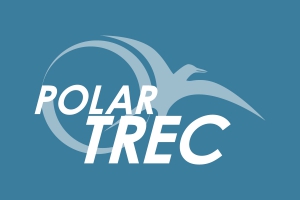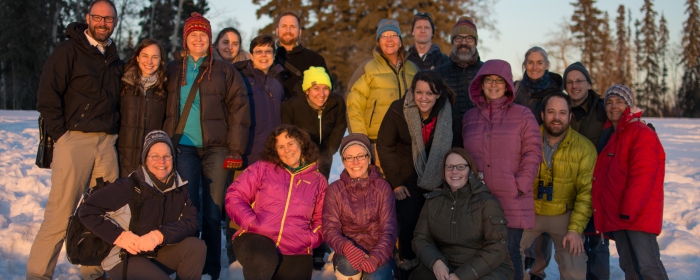
By: Jen Danielson and Angela Larson, PolarTREC Program Evaluators, Goldstream Group Inc. and Janet Warburton and Sarah Bartholow, ARCUS
PolarTREC (Teachers and Researchers Exploring and Collaborating), a professional development program that brings K-12 teachers from around the United States together with polar researchers through an innovative teacher research experience, is one of ARCUS' signature programs. In the last 11 years, ARCUS has placed over 150 teachers with scientists in the Arctic and Antarctic to increase their knowledge about polar science and become better teachers. Working within the research teams, the teachers serve as research technicians, laborers, educators, or observers. They also act as public outreach officers, making contact with the public through web-based presentations, journals, and photos of their experiences. Once home, participants integrate their experiences into classroom instruction and continue public outreach, making the experience a part of their ongoing professional career development. In 2016-2017, 15 teachers will be heading out to the polar regions for their teacher research experiences. More information about their experiences can be found on the Virtual Base Camp.

As part of this program, an external evaluation was conducted by Goldstream Group Inc. In a recent report to the National Science Foundation, evaluation data shows that PolarTREC teachers and their students increase interest and knowledge about polar science. Researchers who host a teacher benefit as well, both from having a team outreach expert and from a new appreciation of K-12 education. Perhaps the most impressive success of the program is the longevity of its impact. Five, six, and even seven years after the experience, participating teachers report using their PolarTREC experience in current lessons. Designated as "potentially transformative" by NSF, PolarTREC is proving to be an effective model for teacher professional development with the potential to transform the nature of science, technology, engineering, and math (STEM) education.
"Before my PolarTREC experience I inspired my students to like science by doing fun activities in class and teaching them interesting facts. The problem was that I was teaching them to like science, but I was not inspiring them to be future scientists. Since my PolarTREC experience I have inspired my students by getting them to think like scientists by teaching them to ask questions and be users and collectors of data. My students now not only think of me as being a scientist but they also think of themselves as being scientists."
—Feedback from a PolarTREC teacher provided during the anonymous project evaluation process.
